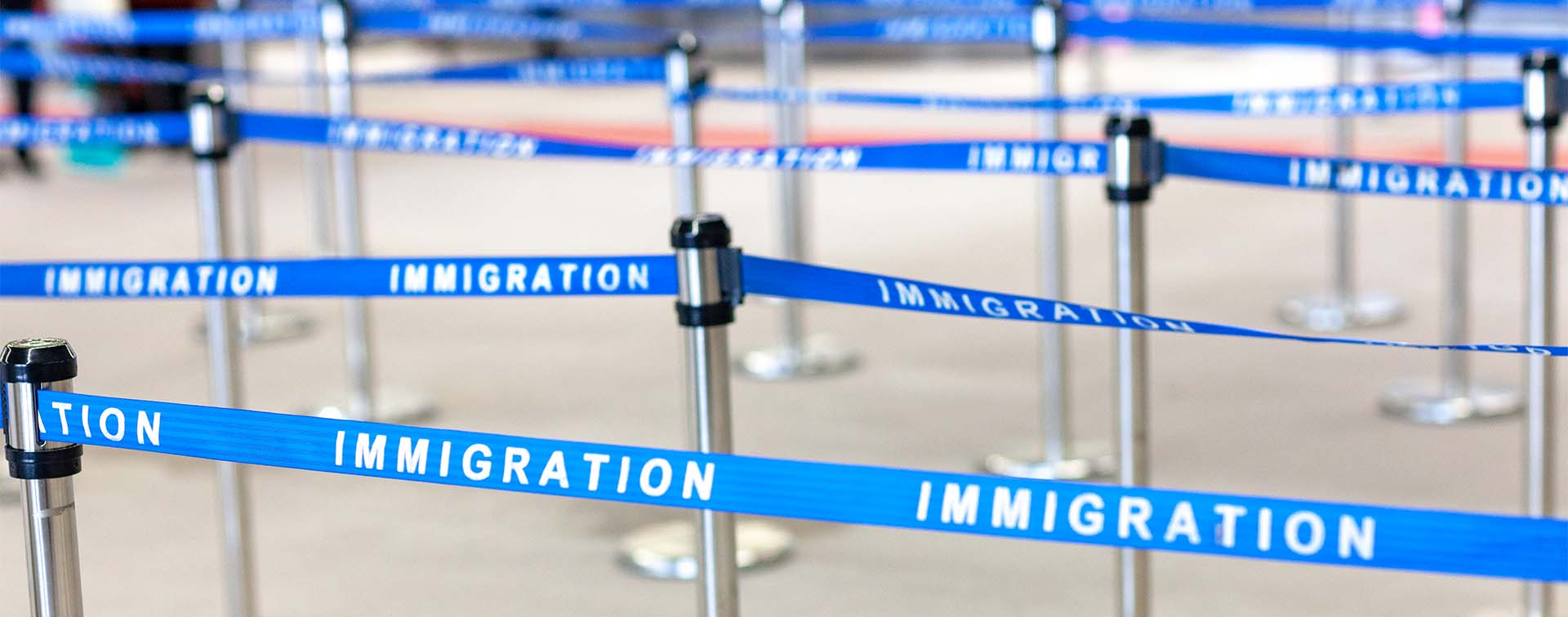
Prof. Peter J. Spiro is Charles Weiner Professor of Law at Temple University Law School.
The US continued its fall in the Henley Passport Index, dipping to 8th position in this year’s ranking, having finished 1st in the debut global passport ranking by Henley & Partners in 2006. The Henley Passport Index indicates the number of states to which a passport secures visa-free access. The firm’s new Henley Openness Index, by contrast, considers the number of destinations that a given state admits without a visa in advance. The US finished a middling 78th in this new ranking.
These placements are perhaps not surprising and are unlikely to have any consequence with respect to US policies. The nation remains the holder of the world’s most powerful economy. In comparison to most other states, the US has a strong brand — perhaps the strongest in the world — for which demand will remain strong, comparative analyses notwithstanding. The picture is not all rosy, however. Other factors may impact the attractiveness of US citizenship and of the US as a destination of choice for international travelers. And domestic difficulties will increasingly incentivize Americans to seek additional citizenships for themselves.

At the top of the Henley Passport Index, rankings are extremely competitive in ways that are only marginally consequential on the ground. The difference in the index between top-ranked Singapore and the US is a mere eight countries, with Singaporean citizens enjoying visa-free access to 192 states versus the US tally of 184. As long as the eight states do not include key destinations, the difference is unlikely to go noticed on the ground.
Moreover, demand for citizenship in states with premium passports is inelastic in the sense that it is not sensitive to small year-to-year variations. The analogy would be to top universities and the various ranking systems for higher education. The fact that Harvard fell from 3rd to 5th in the QS World University Rankings® would hardly have been noticed in Cambridge. Similarly, no one in Washington is fretting over a drop in the passport rankings. The same would be true in most other major capitals.
That could barely be said of middle-ranked states, of course, especially those offering citizenship by investment programs. These states are keenly aware of their performance in the Henley Passport Index insofar as consumers are, too. (It’s the same in the academic world. Annual rankings can be make-or-break for institutions below the top tier, where competition for applicants is severe.) It is no surprise that Caribbean states such as Antigua and Barbuda and St. Kitts and Nevis rank in the Top 30 Henley Passport Index states, and that the Mediterranean’s Malta is in the Top 10. These are countries that are actively pursuing visa-free access by way of improving their standing for marketing purposes. Improved performance in the passport index can also fit into branding strategies for states looking to attract global talent.
With respect to the Henley Openness Index, the US performance is expected. The nation has had both historic and current issues with undocumented migration and security threats. As a result, there are strong political headwinds against expanding visa-free access into its borders. It was only in 1986 that the US adopted the Visa Waiver Program (VWP), at least partly in response to the growing unhappiness of European states who had themselves long exempted US citizens from visa requirements. Nonetheless, US legislative requirements for visa-free designation remain stringent. In recent years, only Chile, Poland, and Croatia have qualified for addition to the VWP list. In the case of Poland, the visa waiver was secured only after intense diplomatic and domestic political lobbying and a one-time legislative fix.
Brazil recently revoked visa-free status for incoming Americans in the face of the US’s imposition of visa requirements on Brazilians seeking to visit the US. But this is unlikely to trigger the beginning of a trend to pressure American authorities to broaden visa-free access to the US. Much as non-reciprocal treatment may chafe, other states can’t risk alienating US tourists with visa requirements, the absence of which Americans have become accustomed. Given legislative strictures on the extension of US visa-waiver privileges, any such attempts to muscle US policymakers are likely to fail.
That said, the value of US citizenship may be buffeted by other factors. The global taxation of American citizens, now unique among states, is a significant deterrent to the acquisition or retention of US citizenship. Although US global taxation has been in place since the advent of the US federal income tax, historically, it was laxly enforced. That changed with the ratifying of the 2010 enactment of the Foreign Account Tax Compliance Act, which enlisted banking institutions into the tax enforcement scheme. The tax exposure is clearly a deterrent in some cases for those who might otherwise seek to acquire US citizenship, and indeed supplies an incentive for some to shed it.
The US may lose ground for other reasons. On the openness side, its extension of visa-free access is low even by the standard of developed economies — the EU member states grant visa-free privileges to more than twice the number of destinations that the US does, for example. For those not enjoying visa exemptions, there are qualitative aspects of the visa system that are impacting US competitiveness in the global system. Processing delays, high refusal rates, and a reputation for disagreeable customer service are tarnishing the attractiveness of the US as a destination of choice for those for whom visas are required. For example, prospective international students are increasingly drawn to competitor institutions in Canada, the UK, and the EU over their US counterparts. Add to that the growing reputation of the US as ridden with gun violence and one can project a long-term trajectory in which US global standing further erodes.
Finally, going forward, Americans themselves may not settle for holding US citizenship alone. Increasing political turbulence in the US has some Americans looking for exit possibilities. The Covid-19 pandemic demonstrated that in emergency conditions, even a US passport will not guarantee global mobility. As a result, Americans are coming to understand the insurance value of additional citizenships. Those who are lucky enough to have the right ancestors are availing themselves to citizenship in EU member states. Others are exploring citizenship by investment programs. Even a very strong passport by itself will no longer insulate individuals from global uncertainties.